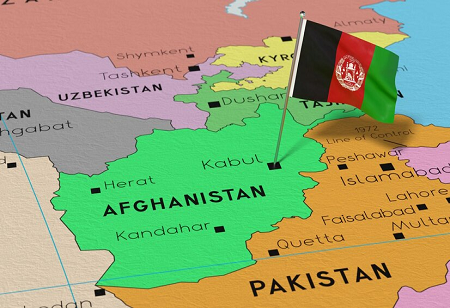
In August 2021, the USA withdrew all its forces from Afghanistan, resulting in the termination of economic support. Projects were abandoned halfway. The entire nation was in a state of political and economic disarray. In spite of a dwindling private sector and a strong reliance on external support, the country nevertheless has numerous private enterprises operating at half capacity despite the shortcomings.
The Afghan economy had a substantial trade deficit despite the export surge. Imports of various goods doubled during 2022 and 2023. In some categories, the imports led to a trade deficit. Despite this factor, the economy witnessed appreciation in 2023. Meanwhile, the UN continues to financially assist them with remittance and cash inflows.
Navigating the Afghan market is a challenge in its own right. It requires dedication, patience and wit. Experts from numerous institutions have outlined a few major qualities necessary for one to seek business success in their society.
Since time immemorial, we have seen numerous businesses fail because they failed to consider cultural aspects when expanding their business. A prominent example of this is the world’s largest retailer failing in Germany. The first step identified to succeed in Afghanistan is to gain an understanding of the local business culture. They are seen to value personal relationships and trust and often conduct business based on respect and long-term partnerships rather than the calling of profits. Building strong connections with local officials, business leaders, and community members is vital. Understanding cultural nuances has proven to go a long way.
A prime example of a business that thrives by satisfying the aforementioned services is Roshan Telecommunications. It is the leading telecom service provider in Afghanistan, covering all 34 provinces. Roshan, meaning light in Dari, blended itself into the social fabric of the nation and the local communities. Through initiatives where they provided mobile connectivity to even the most remote corners and also endorsed education programs, it is an example of how one appreciating local culture can see business success.
"Facilitating cross-border collaborations, local expertise plays a crucial role in comprehending the market nuances and assisting in developing tailored strategies," Amandeep Kochar, President & Group CEO, Baker & Taylor.
Due to the political and legal situation in Afghanistan, problems are to be expected for unsuspecting businessmen. Navigating the regulatory challenges demands an adept approach. Leveraging the local legal experts and consultants can assist one in making light work of those challenges. It is critical to develop a comprehensive understanding of the unconventional practices of the provinces.
Before the previous government's fall, Chevron( formerly Unocal) successfully negotiated regulatory barriers and played a major role in establishing Afghanistan’s Energy Sector. They collaborated with all the local officials, were in compliance with all the stipulated guidelines, and contributed immensely to their energy and infrastructure development. This is an excellent case that demonstrates proactive engagement with regulatory bodies to navigate challenges effectively.
"Using the right market research methodology together with leveraging the local marketing expert/local domain industry expert can cater to differences," Mint Charoenporn Kaewmanorom, Head of Marketing and IoT Operations, True Digital Group.
Given a nation as turbulent as Afghanistan, flexibility has been the defining trait that ensures whether companies can survive or not over there. The political, economic and social factors have been in a constant state of flux. Monitoring the geopolitical trends while maintaining open lines of communication with local partners has enabled businesses to respond promptly to changes.
On the aspect of communications, South African telecom giant MTN has demonstrated resilience and rapid adaptability skills in the face of political instability. They have continuously kept an eye on geopolitical developments, maintained open channels, and varied their strategies to adapt to the ongoing crisis. They have succeeded in staying relevant for a long time in the Afghan telecommunications sector. This is a good example of how staying agile in turbulent environments is the key to surviving and thriving.
"Knowing what to invest in and ensuring that new methodologies are launched accurately and quickly comes down to three things – what you have, what you know, and who you know," Zoya Brar, Founder, CORE Diagnostics.
The major reason for international companies not venturing into Afghanistan is the security risk. It is the number one priority that must be on the list of any enterprise operating there. The risk is attributed to physical and cyber. The optimal solution recommended for this is to collaborate with well-reputed local security agencies and stay up to date on the current threats. It is advisable to have numerous contingency plans in place.
Afghanistan International Bank has navigated this challenge by implementing robust security measures by partnering with risk assessors and security experts. By guaranteeing the safety of its assets and personnel, the bank has maintained a secure business environment. This case is a solid example of how proactive business measures and safety guarantees are mandatory to operate an enterprise in Afghanistan.
Afghanistan is currently an untapped gold mine. The cases illustrated above prove one needs to take a multifaceted approach to set a solid foothold. From culture to security, an enterprise needs to tick off several criteria compared to establishing a business elsewhere. Challenges always persist, but light is always at the end of the tunnel.
We use cookies to ensure you get the best experience on our website. Read more...